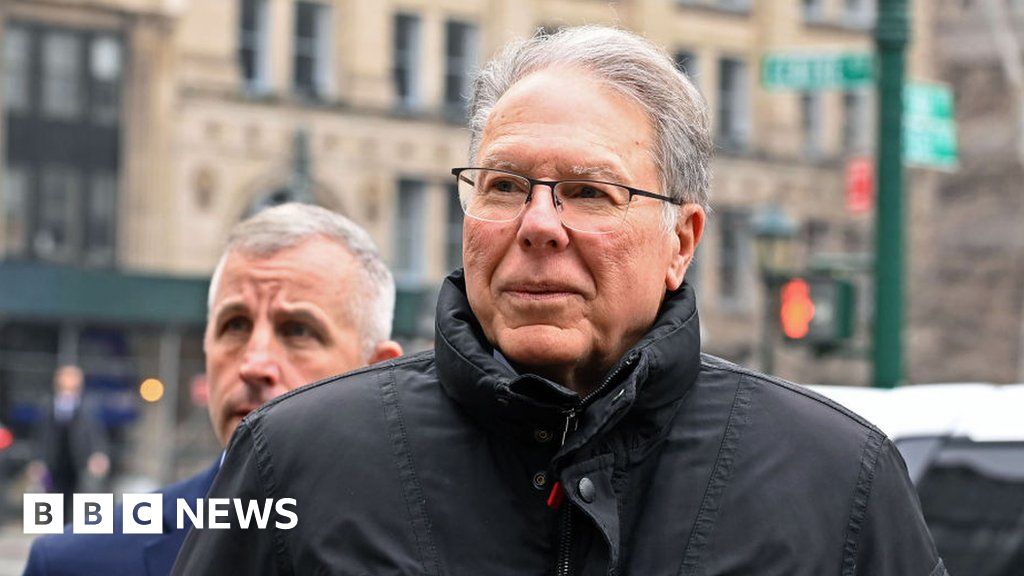- Written by Bernd Debsmann Jr.
- BBC News, Washington
image source, Getty Images
The National Rifle Association and two of its executives were found liable in a civil corruption trial and ordered to pay back $6.35 million (£5 million).
A New York jury agreed that former leader Wayne LaPierre cost gun rights groups millions of dollars through lavish spending on himself.
New York Attorney General Letitia James accused the NRA and Mr. LaPierre of violating state law.
Mr. LaPierre resigned from his position just before the trial began.
On Friday, a jury found that Mr. LaPierre caused total damages to the group of $5.4 million, of which just over $1 million had already been repaid. He now has to pay back $4.35 million.
Former NRA treasurer Wilson “Woody” Phillips, general counsel John Fraser, and the NRA itself were co-defendants.
Mr. Phillips was ordered to pay back $2 million.
Mr. LaPierre, 74, who served as the NRA's top executive for more than 30 years, appeared in court and reacted to the verdict in a deadpan manner.
Fraser was found not to have caused any financial harm to the organization and the jury did not order him to repay the money.
The NRA said the verdict confirms “the association's long-standing claim that it was harmed by certain former vendors and 'insiders' who abused the trust the association placed in them.”
The group also noted that no fines were payable and the jury found there was no cause to fire Fraser, the only defendant, who still works for the NRA.
The gun lobby added that it had adopted new policies and accounting controls in recent years.
After the trial, James said LaPierre and the NRA were “finally being held accountable for this rampant corruption and self-dealing.”
New York's attorney general had originally sought to completely dissolve the NRA when his office filed a lawsuit in 2020, but a judge blocked that move.
At trial, the three defense attorneys and the NRA sought to portray the trial as a “groundless, premeditated attack” by Democrat James and a politically motivated “witch hunt.”
But in closing arguments, Assistant Attorney General Monica Connell said the NRA, a registered charity, should have used the money for its true mission rather than extravagant spending.
“Just saying I'm sorry now and saying I might take some cookies back doesn't mean I didn't take them,” Connell said.
During the six-week trial, prosecutors detailed specific expenses that showed Mr. LaPierre and other executives were using NRA funds as a “personal piggy bank.”
Mr. LaPierre used funds earmarked for the NRA to fly to the Bahamas more than eight times, at a total cost of $500,000.
The evidence includes taking a helicopter to a car race to avoid getting stuck in traffic, and money spent on landscaping and mosquito-proofing LaPierre's home.
Other expenses included gifts for friends and family and hair, makeup and styling for Mr. LaPierre's wife.
Judges will now have to decide whether to appoint independent monitors and experts to oversee the NRA's charitable assets and operations without a jury.
The NRA is based in Virginia but incorporated in New York City.
The Attorney General's Charities Bureau is responsible for overseeing nonprofit organizations.
Founded in 1871 as a recreational organization to “promote and encourage rifle shooting,” the NRA has grown into one of the most powerful political organizations in the United States.


